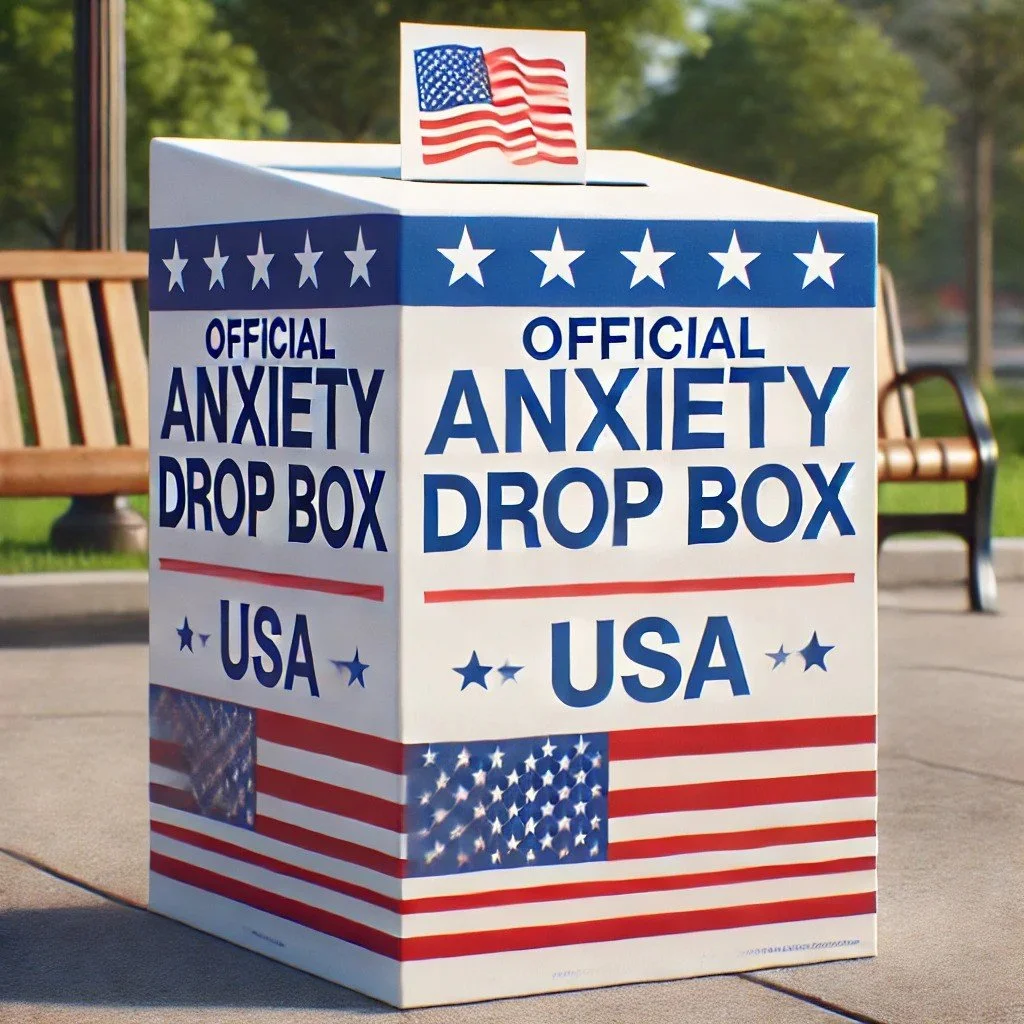How to Handle Anxiety & Frustration From Holiday Travel Delays
Travel delays can be incredibly frustrating and anxiety-inducing, especially when you have places to be and plans to keep. During the holidays, travel gets more intense and the stakes feel higher. Tensions can be high and anxiety crackling. Whether you're dealing with a missed flight, a traffic jam, or a long airport wait, it's easy to let stress take over. But with a few strategies, you can handle these delays with greater ease. Here's how to take the stress out of travel
Understanding Travel Anxiety and Frustration
Travel anxiety and frustration are common experiences that can arise when things don't go as planned. The unpredictability of travel, coupled with a lack of control, can trigger stress. It's important to recognize these feelings as normal and valid but also to learn how to manage them in healthy ways.
Common Causes of Travel Anxiety and Frustration
Uncertainty. Not knowing when a delay will end or how it will impact your plans can be stressful.
Loss of Control. Feeling powerless can lead to anxiety. It's one of the reasons fear of flying is so common. When you can't control how and when you get somewhere, anxiety is likely to rise.
Time Pressure. Rushing to meet deadlines or appointments adds to the pressure and stress. If we're worried about missing something or someone, our stress jumps up.
Crowded Environments. Being in crowded airports or stations can increase feelings of overwhelm and impatience. The sensory input and difficulty moving through crowded spaces is a natural anxiety booster.
How To Combat Travel Frustration and Anxiety
Mindfulness: Being Present in the Moment
It's too easy to focus on what you're missing instead of appreciating something in the moment. But bringing yourself into the moment can do a lot to regulate your mental state. Mindfulness is a great tool for managing travel anxiety and frustration. It involves bringing your attention to the present moment and observing your thoughts and feelings without judgment. Doing this can reduce stress and cultivate a sense of calm, even in challenging situations.
Mindful Strategies for Managing Travel Delays
Focus on Your Breath. Take slow, deep breaths to calm your nervous system and bring your attention to the present moment. Notice the sensation of your breath as it enters and leaves your body.
Observe Your Surroundings. Engage your senses by noticing the sights, sounds, and smells around you. Is there an interesting piece of art in the airport? A sweet older couple delayed with you? Someone's support animal being cute? Notice it and be present with it for a full minute. This practice can help ground you and shift your focus away from anxiety.
Accept What You Can't Change. Acknowledge that travel delays are out of your control and that fighting against them only increases stress. Instead, practice acceptance and patience.
Practice Gratitude. Reflect on the positive aspects of your journey, such as the opportunity to travel or the kindness of others. Gratitude can shift your mindset and reduce frustration. If possible, express your gratitude to the hard-working people trying to mitigate the delays like gate workers.
Compassion: Being Kind to Yourself and Others
Compassion involves extending kindness and understanding to yourself and others, especially in difficult situations. Travel delays tend to put everyone on edge and many struggle with compassion. By cultivating compassion, you can ease feelings of frustration and anxiety during travel delays.
Cultivating Compassion During Travel Delays
Be Gentle with Yourself. Recognize that it's okay to feel anxious or frustrated. Offer yourself words of kindness and reassurance, just as you would a friend.
Practice Self-Forgiveness. If you feel responsible for a delay or missed connection, forgive yourself and let go of self-blame. Remember that mistakes and setbacks are part of life.
Extend Kindness to Others: Recognize that other travelers are likely experiencing similar frustrations. Practice patience and empathy, and consider offering a smile or a kind word.
Focus on Connection. Use the time during delays to connect with fellow travelers, share stories, or engage in small talk. Building connections can alleviate feelings of isolation and stress.
Curiosity: Embracing the Unknown
Curiosity involves approaching situations with an open mind and a sense of wonder. By cultivating curiosity, you can transform travel delays into opportunities for exploration and discovery.
Embracing Curiosity During Travel Delays
Explore Your Surroundings. Use the delay as an opportunity to explore the area, whether it's an airport terminal, train station, or nearby attractions. Look for interesting shops, art displays, or local cuisine. Read the plaques below murals and exhibits.
Engage in People-Watching. Observe the diverse array of travelers and imagine their stories. This practice can spark your imagination and help you appreciate the richness of human experience.
Try Something New. Use the delay as a chance to try a new activity. Try reading a book, learning a few words of a new language, or trying a new type of food.
Reflect on Your Journey. Use the time to reflect on your travel experiences, personal growth, and future aspirations. Consider keeping a journal to capture your thoughts and insights.
Self-Care: Prioritizing Your Well-Being
Self-care involves taking intentional steps to care for your physical, emotional, and mental health. By prioritizing self-care, you can reduce anxiety and frustration during travel delays and support your overall well-being.
Self-Care Tips for Managing Travel Delays
Stay Hydrated: Drink plenty of water to stay hydrated and avoid fatigue. Dehydration can exacerbate stress and anxiety, so keep a water bottle with you.
Eat Nourishing Foods: Choose healthy snacks and meals to fuel your body and mind. Avoid excessive caffeine or sugary foods that can lead to energy crashes.
Move Your Body. Engage in gentle stretches, walks, or exercises to release tension and boost your mood. Movement can help counteract the effects of sitting for long periods.
Rest and Recharge: Use the delay as an opportunity to rest and recharge. Find a quiet spot to relax, meditate, or take a nap if possible.
Practice Relaxation. Consider using relaxation techniques such as progressive muscle relaxation or calming music to soothe your nerves.
SOS Strategies for Immediate Anxiety Relief
If you find yourself completely freaked out and the idea of doing any of the activities above sounds way too hard, we got you. Travel delays can sometimes trigger intense anxiety that feels difficult to manage. In these situations, it's helpful to have a set of quick and effective strategies to calm your nervous system and bring yourself back to the present moment. Here are some techniques you can use to find immediate relief:
1. Snapping a Rubber Band
Keeping a rubber band on your wrist can be a simple yet effective tool for interrupting anxious thoughts and grounding yourself.
How It Works: Gently snap the rubber band against your wrist when you notice anxiety building up. Focus on the feeling. The slight physical sensation can serve as a distraction, helping to redirect your focus away from anxious thoughts. This technique provides a tactile reminder to return to the present moment, breaking the cycle of negative thought patterns.
2. "Dive"
Using cold water to soothe anxiety is a quick and accessible technique that can help reset your system.
How It Works: Find a restroom or a place where you can splash cold water on your face. Hold your breath as you do so. This sudden change in temperature can help activate the parasympathetic nervous system, which is responsible for calming your body's stress response. The longer you hold your breath, the more your brain will act as though you are underwater. This means it will allocate resources to muscles and heart functions over emotional response.
3. Using Temperature to Calm the Body
Applying cold temperature to your body can be an effective way to activate the "dive reflex," which naturally slows down your heart rate and promotes relaxation.
How It Works: Hold a cold pack, ice cubes wrapped in a cloth, or a cold beverage against your forehead or neck for a few seconds. Alternatively, you can dip your hands in cold water. This method stimulates the parasympathetic nervous system, helping to decrease anxiety and bring a sense of calmness.
4. Deep Breathing with a Focus on Exhale
Breathing deeply and focusing on extending the exhale can quickly calm an anxious mind.
How It Works: Inhale slowly through your nose for a count of four, hold for a count of four, and then exhale through your mouth for a count of six. Focus on making your exhalation longer than your inhalation. This pattern engages the parasympathetic nervous system, reducing stress and promoting relaxation.
5. "Five Things" Grounding Technique
Grounding techniques are helpful for pulling your mind away from anxious thoughts and reconnecting with the present.
How It Works: Identify five things you can see, four things you can touch, three things you can hear, two things you can smell, and one thing you can taste. This exercise helps shift your attention away from anxiety, bringing you back to the here and now.
Finding Calm Amidst Chaos
Travel delays can be stressful, but having a set of tools and techniques at your disposal can help you handle anxiety in the moment. These SOS strategies are designed to provide quick relief, allowing you to regain control and find calm amidst the chaos of travel.
If you often find yourself overwhelmed by anxiety often, consider seeking professional support through therapy. Our team offers teletherapy services to residents of California and Florida. Our therapists are here to provide guidance and support. Schedule a free consultation with us today to start your journey towards peace and well-being. No delays in sight!


























